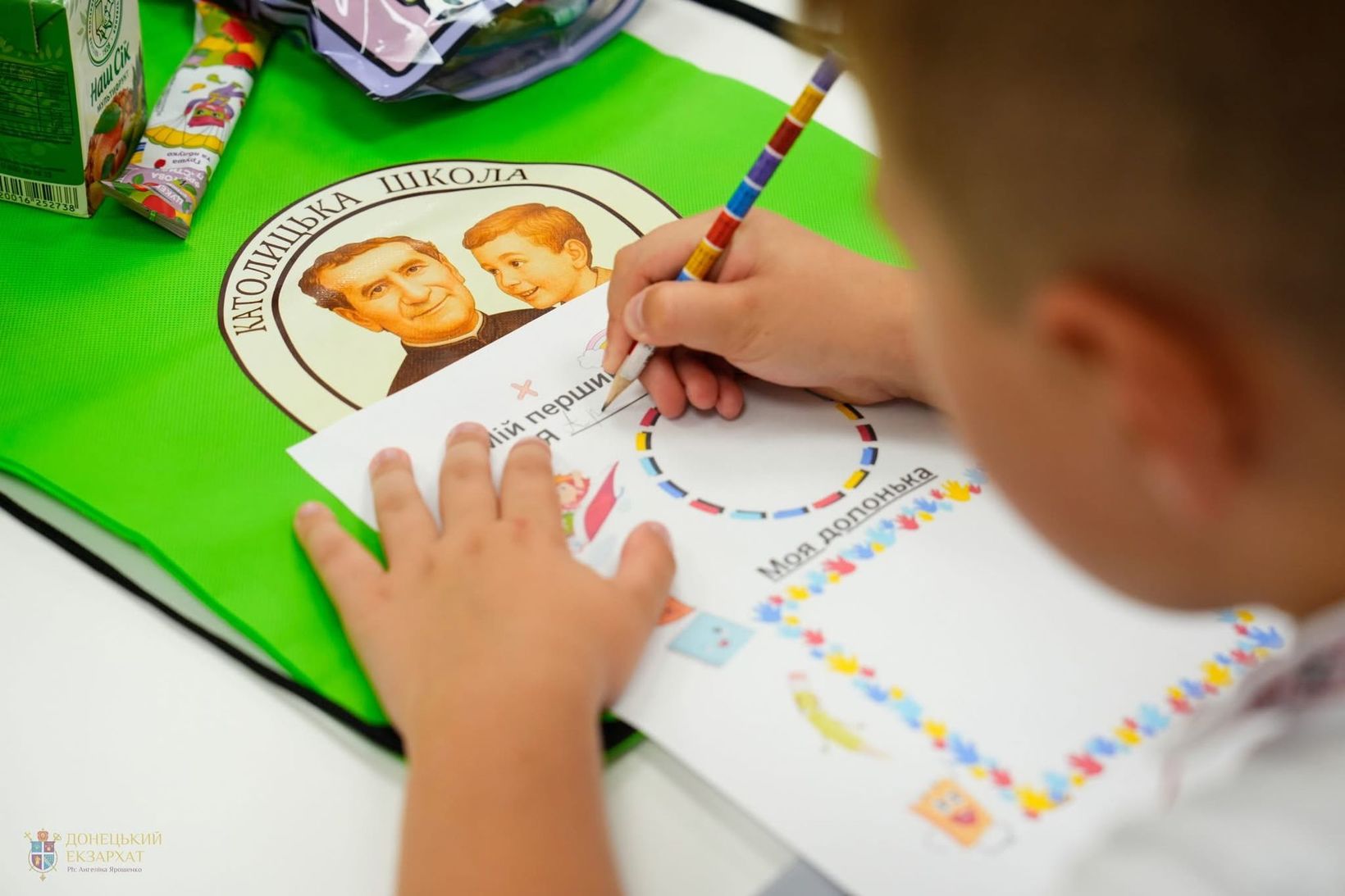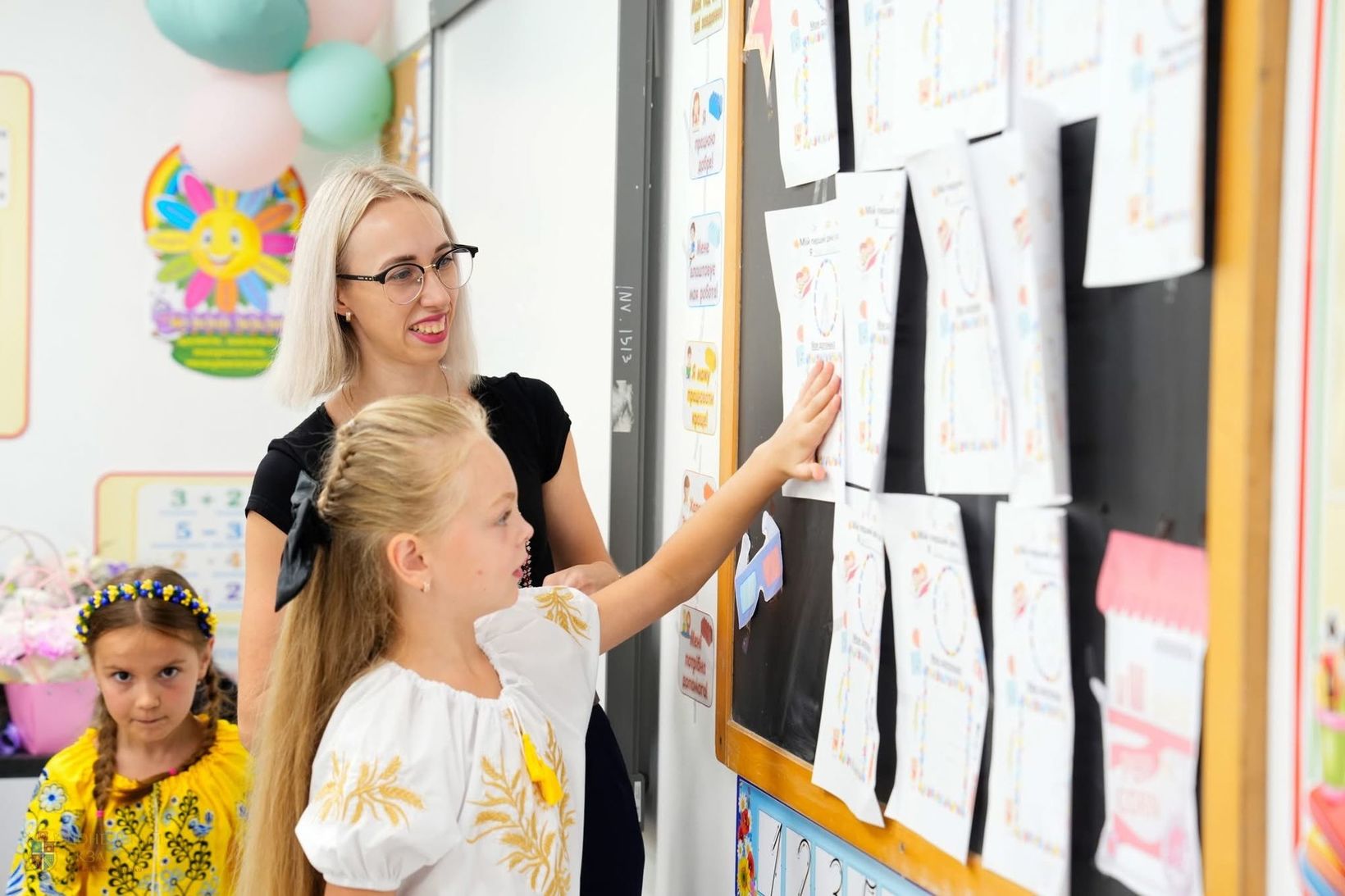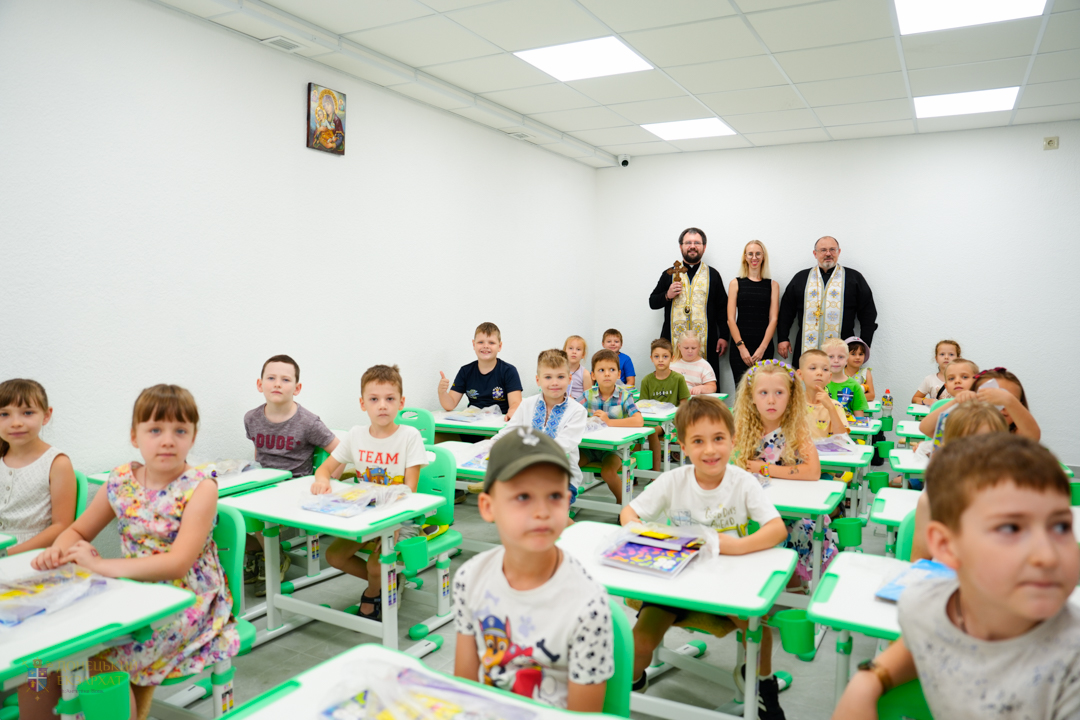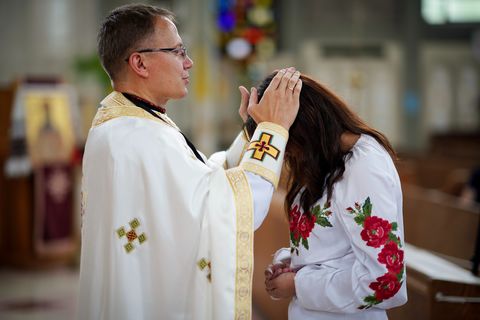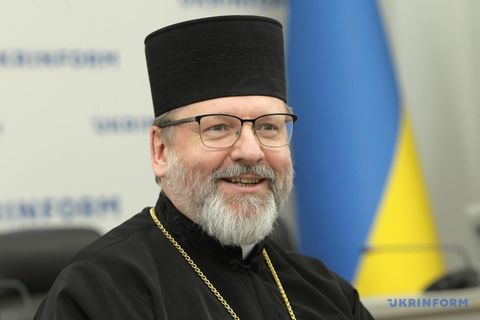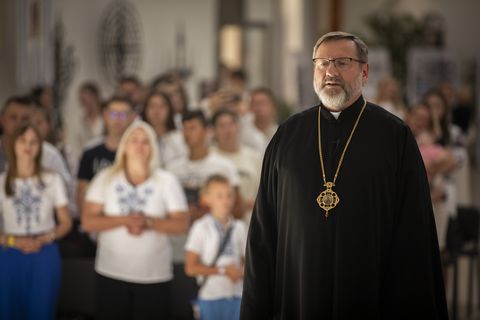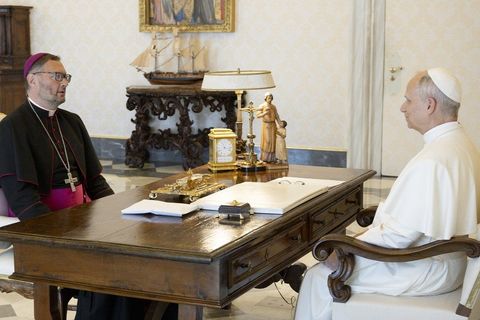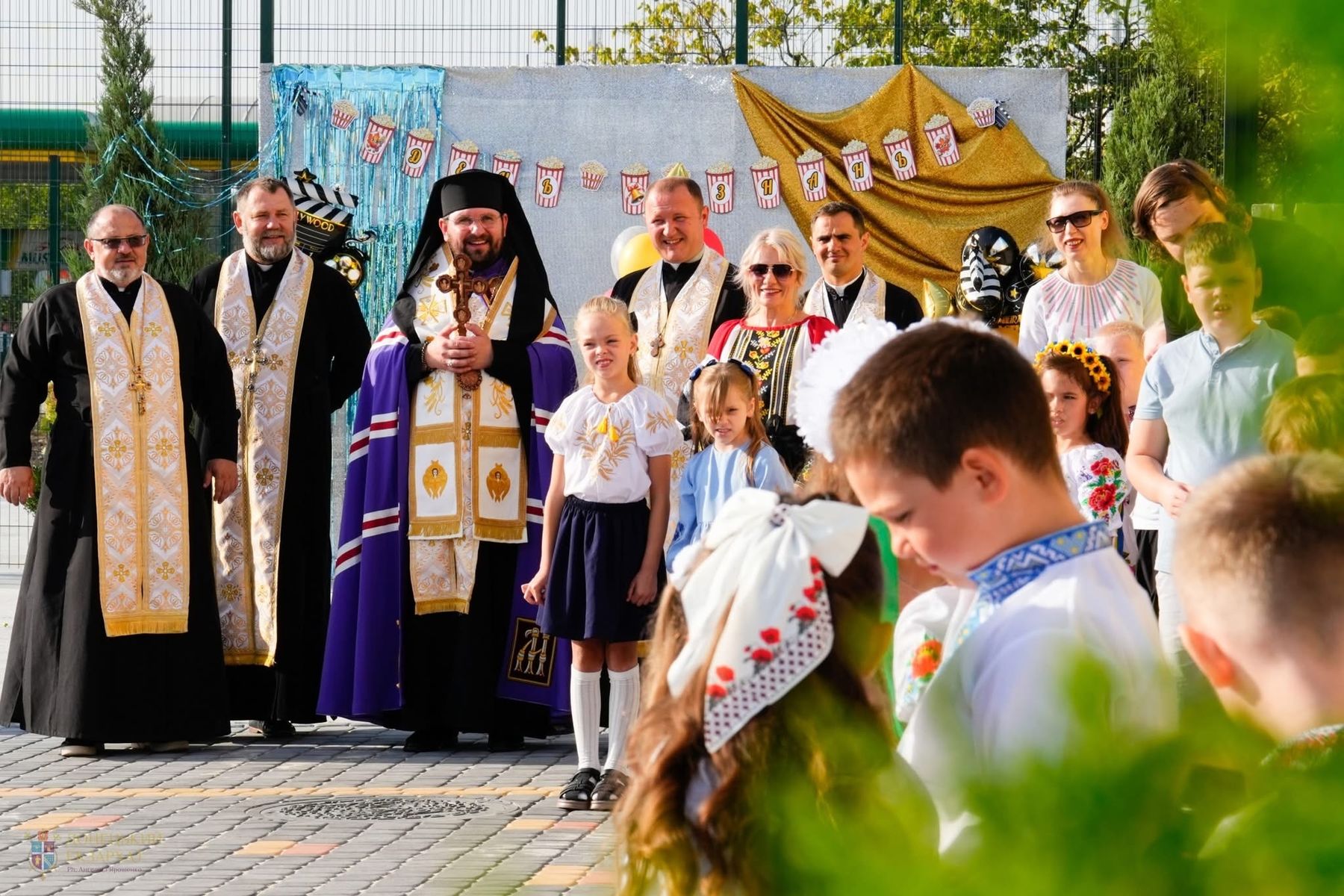
“A School Surviving Daily Attacks: It Is Not About Fear, But About Hope” — Bishop Maksym
The first Catholic school of St. Don Bosco has opened in Zaporizhia—a place where children have a chance to study, grow, and have a stable environment, even during wartime. Its establishment was made possible thanks to the shared dream of the Exarch of Donetsk, Bishop Maksym Ryabukha, priests, parishioners, and benefactors.
We talk with Bishop Maksym Ryabukha about education during daily shelling, the desire of Ukrainian families to stay at home, the creation of a safe space, and plans to develop a network of Catholic schools.
It hurt me to see how many children who came to us did not know their classmates at all. There were instances when, after two years of schooling, they met them for the first time in church.
— Your Excellency, how did the idea of founding the first Catholic school in Zaporizhia arise? Why was Saint Don Bosco chosen as its patron saint?
— The idea of a Catholic school had been on my mind for a long time. Even before I began my episcopal ministry, I often said that I dreamed of founding a Salesian school in Luhansk. So when the question of accepting the episcopate arose, one of the reasons for my agreement was precisely the desire to make this dream come true. I felt that God also supported me in this, because the ministry of a bishop opens up opportunities to implement such projects.
When I arrived at the exarchate, I shared this idea with Father Roman Vovk, the rector of the parish of Our Lady of Perpetual Help, where I live. He immediately encouraged me because he also shared this dream. At that time, the parish had already gathered around itself many children who attended church services, catechism classes, and various clubs. Therefore, we both wanted to take the next step in working with children and youth. And given the challenges of war and the conditions in which we live, this need seemed acute to us.
It was painful for me to see how many children who came to us did not know their classmates at all. There were cases when, after two years of schooling, they met them for the first time in the church. This is a sign of a serious humanitarian crisis: since 2019, children in our region have hardly been sitting at their desks. They do not know what it means to go to school every day, see their peers, listen to the teacher live, and do their homework in his presence… All this prompted us to think over ways to help. We understand that this problem will only get worse in the future. There is a risk that society will eventually experience a shortage of qualified specialists in various fields. Therefore, we could not just stand by and watch this reality unfold.
So, the parish priest and I began to share our thoughts with various benefactors and organizations working in the field of social service. We sought land, planned the construction, and even collaborated with one organization that gave us hope for building an educational center. However, we were later informed that they would not be able to assist us further in this matter.
By that time, we had already taken many steps and, most importantly, brought together associates who shared our vision. The refusal was a serious challenge for us. For the next three days, we lived between disappointment and prayer: on the one hand, pain and loss of hope, on the other, even greater trust in God. We were sure that He had an answer to the circumstances we were undergoing. Three days later, I received a phone call informing me that there was a person who would like to support an important social project in the Donetsk Exarchate. Together with the priests, I began to think about what this could be, and we finally agreed on the idea of building a Catholic school.
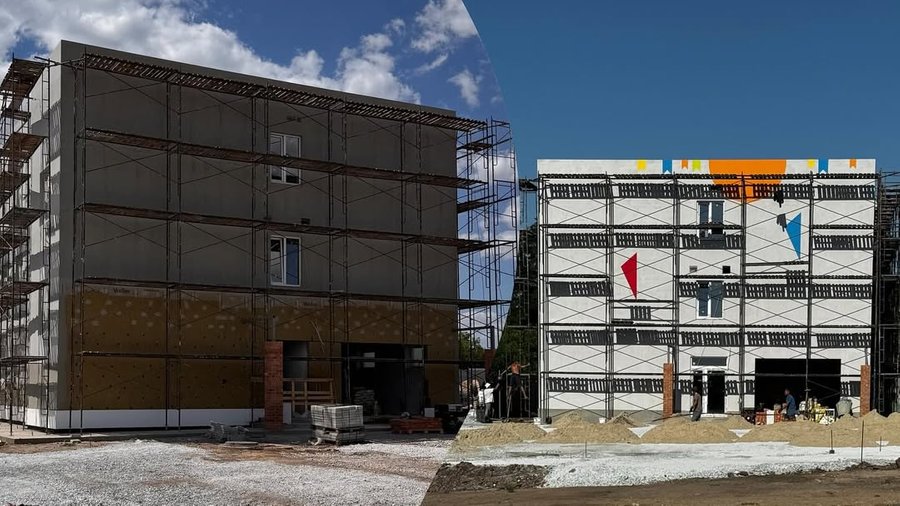 Construction of the Catholic school in Zaporizhia
Construction of the Catholic school in Zaporizhia
That benefactor, who wished to remain anonymous, gave us the impetus to begin construction work. Even then, we understood that the school would need underground facilities, as it is impossible to study outdoors under our conditions. The construction and furnishing of the school took 14 months. We managed to complete everything before the start of the school year.
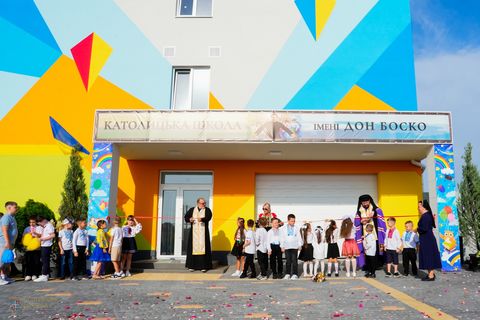 Read also:
Read also:
First Catholic School “Don Bosco” Opens in Zaporizhia under the Ukrainian Greek Catholic Church
The school is named after Saint Don Bosco. Even before the project began, we visited various Catholic schools to gain experience. At one of the schools, near Vienna, we were given a statue of Saint Don Bosco, emphasizing the importance of Salesian education in the Catholic Church. Although I am a Salesian myself, and Don Bosco is the patron saint of children and young people, I consciously tried not to interfere. Nevertheless, our school proudly carries the name of Saint Don Bosco thanks to the choice of the principal, Ms. Vitalia.
We want to accompany children and young people, to open up a broader view of life for them, outside the confines of post-Soviet thinking.
— Is this a primary school? How many classes are there now?
— The school has first and second forms. The first form began classes in a newly built shelter on the parish grounds. Right now, keeping the learning process going in cities near the front lines is extremely rare, because only a few schools can provide kids with daily classes, despite the anxiety and shelling. Due to a lack of space, they decided to buy some land near the parish to build an educational campus.
Currently, the school functions as a primary school, but we dream of creating an entire educational campus. Looking the entire Donetsk Exarchate, here we have a high demand for a full cycle of education in order to educate children, youth, and families based on Christian and humanitarian values. We want to accompany children and young people, and open their eyes to a broader view of life, outside the confines of post-Soviet thinking.
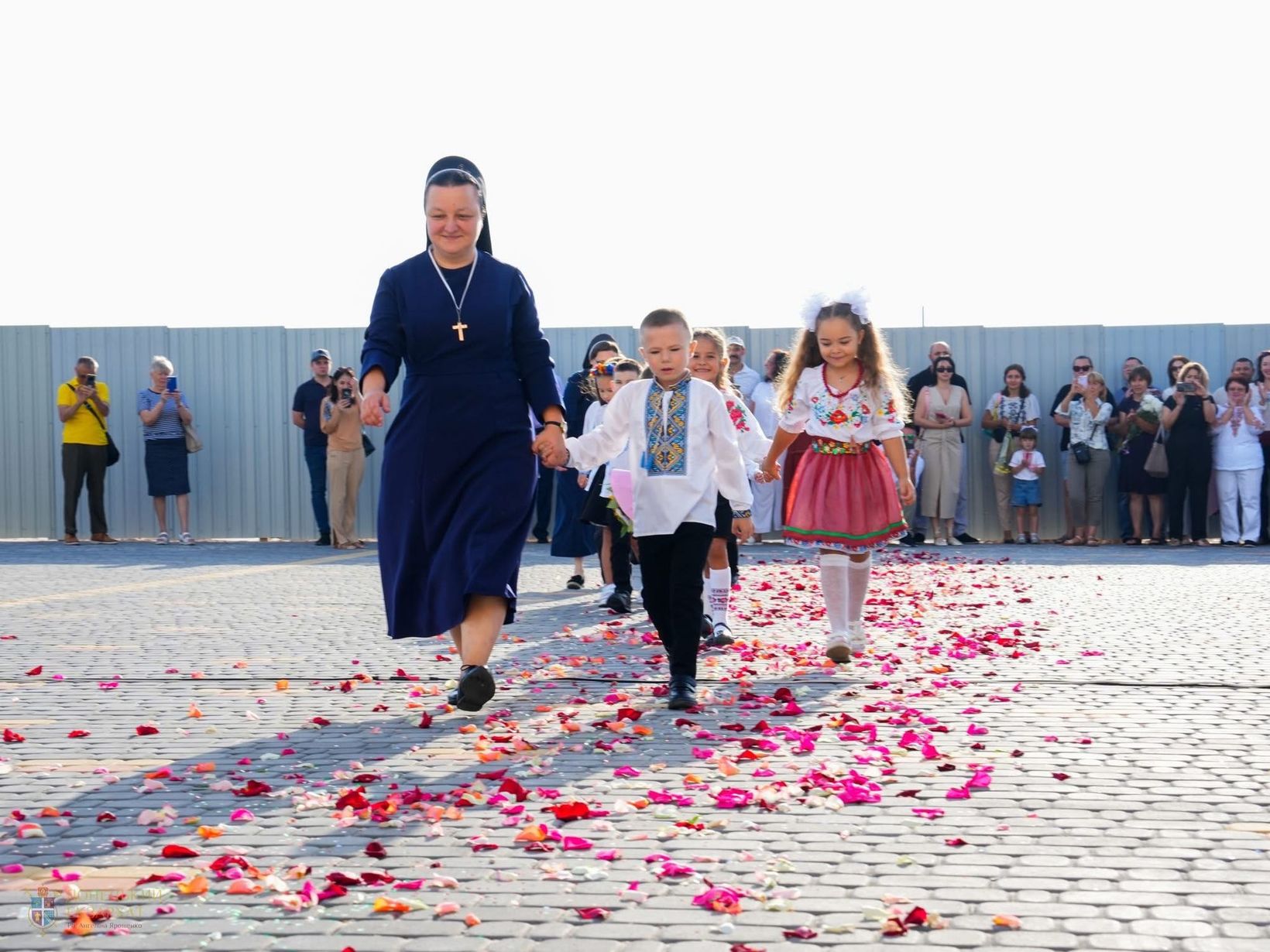 Children heading to their desks with their first teacher
Children heading to their desks with their first teacher
— Do you envision this school as a symbol of hope for those who, despite everything, have decided to live and raise their children in Ukraine?
— Yes, the school is indeed a symbol of hope for us. Principal Vitalia Vovk calls it a ray of light amid the ruins. In a region where war is destroying everything, we are committed to providing a proper education for a new generation of healthy civil society. This is a tremendous responsibility, but at the same time, it is clear evidence that for us, school is not just about education, but about hope for the future.
People still remain in frontline cities because they have been forced to move from place to place in search of a safer environment more than once. Among those who now live in Zaporizhzhia, there are many people from the Donetsk region. Some moved here in 2014, others in 2022, with the start of full-scale war and more frequent shelling.
Ultimately, it is difficult for people to leave because the question arises: where to? Zaporizhzhia is not currently occupied, and we believe that it will remain so. Of course, under daily fire, people here feel helpless, but they also believe that our military will be able to hold the front line and defend our independence. Locals also realize that the military needs a reliable rear. That is why they stay, work in frontline cities, and support those who are currently defending Ukraine.
— How did the local community react to the idea of the school? Do you feel support from parents, authorities, and other educational institutions?
— The local community has responded positively to our initiatives, which is only natural. Our priests have been working in the parish for many years, constantly reaching out to people and providing them with comprehensive support — both spiritual and social — through various projects. We also have a youth center. All of this speaks for itself.
The parents of the children who are now studying with us have already seen how the parish conducts values-based education, and at the same time, they have felt a certain “guarantee of life” — stability, despite all the difficulties we are experiencing. Therefore, this school was also their dream. They even asked us directly: “if possible, could you set this up?” So the school is our shared dream, that has now become a reality.
The authorities and other educational institutions also fully support us. There is complete mutual understanding between us, because we are not working against each other’s interests, but for the common good.
Other Sisters Servants also visit the school, helping to educate the children, instilling values in them, and above all, living by those values themselves. Because teaching moral principles is one thing, but seeing an example and following it is another, very effective lesson.
— Tell us please, about the school’s teaching staff.
— Our teachers are qualified professionals, currently a small but friendly team. The teaching staff of our school consists of both consecrated persons and lay people. The school is supported not only by teachers, but also by the administration, cooks, medical staff, and technical personnel who ensure the daily operation of the institution. Other Sisters Servants also visit the school to help educate the children, instill values in them, and, above all, live by those values. Because teaching moral principles is one thing, but seeing an example and following it is another, but very effective lesson.
— You have mentioned daily shelling. How do children and teachers cope with such a challenge?
— Sirens and explosions are no longer news to us; they are rather part of our everyday life. Teachers have clear instructions on what to do when an air raid siren sounds. If a physical education class is taking place outdoors or it is a regular break, obviously everyone has to make their way to a shelter as quickly as possible. If it is a classroom lesson, the children are already in the shelter, so there is no need to suspend the lesson.
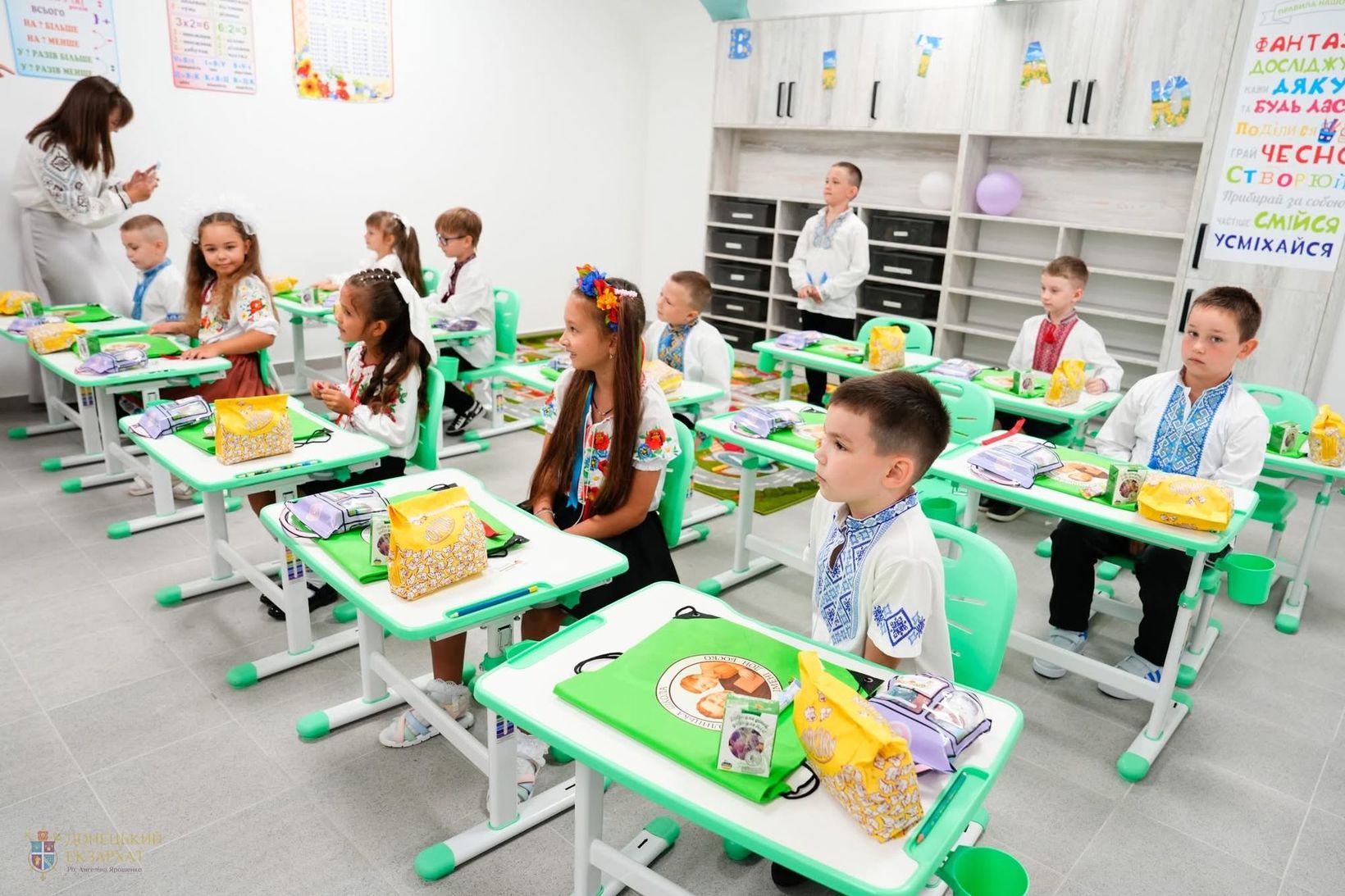 Children’s first celebratory lesson in a newly built school
Children’s first celebratory lesson in a newly built school
— Are you planning to open similar schools in other cities in the frontline zone?
— As a bishop, I realize the need for such educational institutions everywhere. I am currently in search of like-minded individuals with whom to establish them. This includes various individuals: priests and monastic congregations who could work at these schools, as well as benefactors who would be in charge of their development and maintenance. It is not enough to simply open a school; it also needs long-term care and support.
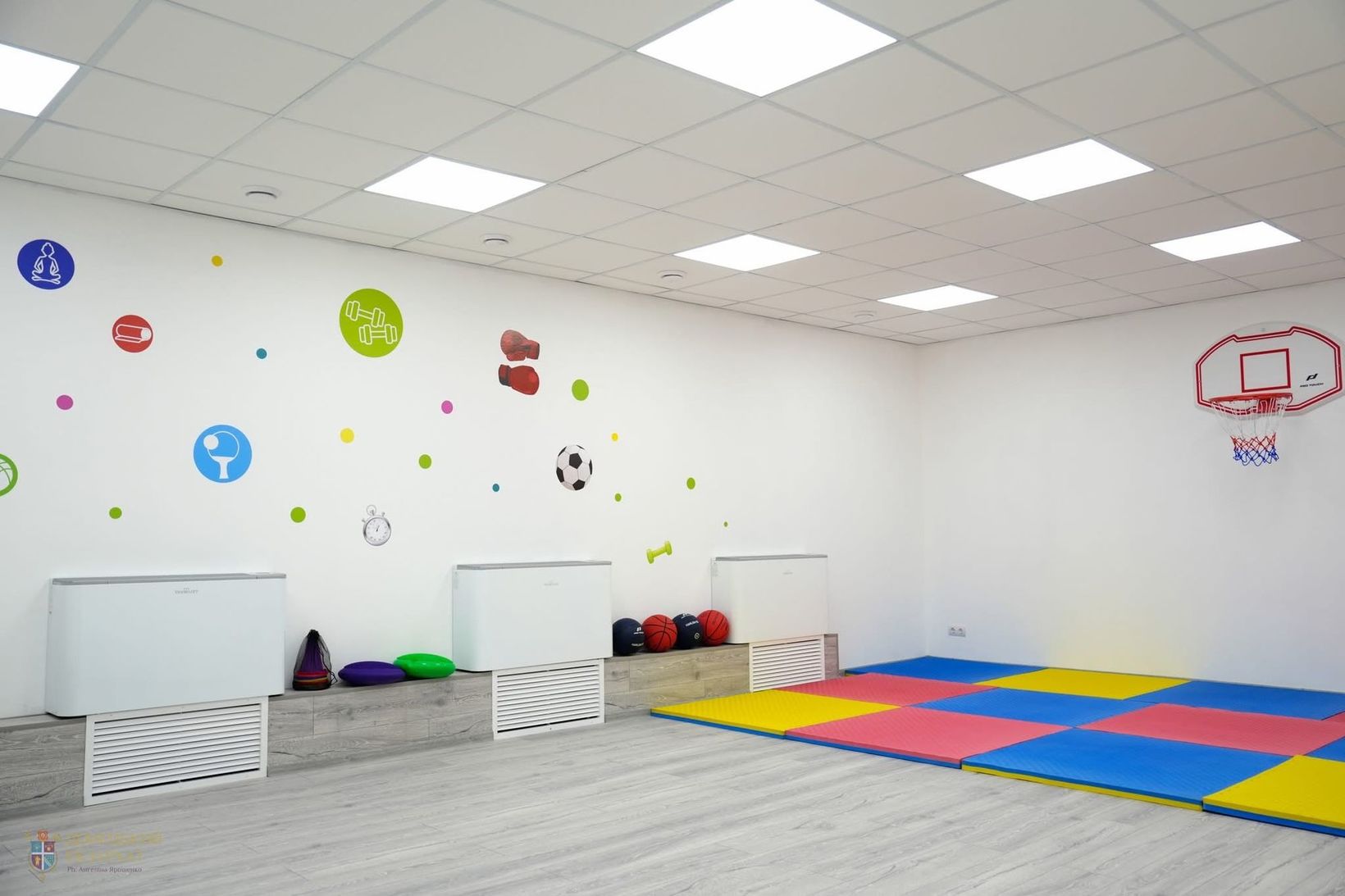 The school’s physical education room
The school’s physical education room
— What is the place of Catholic education in the contemporary mission of the Ukrainian Greek Catholic Church? Can we say that school is also a means of evangelization?
— Education and upbringing play an important role. I am not ready to say that it is the primary role, because the challenges of war pose many other tasks before us. But education is also the formation of a healthy civil society. And it is precisely such educational institutions that make it possible to create a healthy environment for the population.
It is also a wonderful space for evangelization, because when children learn about the world, they begin to learn about God, and by learning about God, they better understand themselves and others. Therefore, for us, school is not just an educational institution, but an important model of how society is shaped.
Interview by Diana MotrukThe UGCC Department for Information
Photo — Donetsk Exarchate of the Ukrainian Greek Catholic Church
